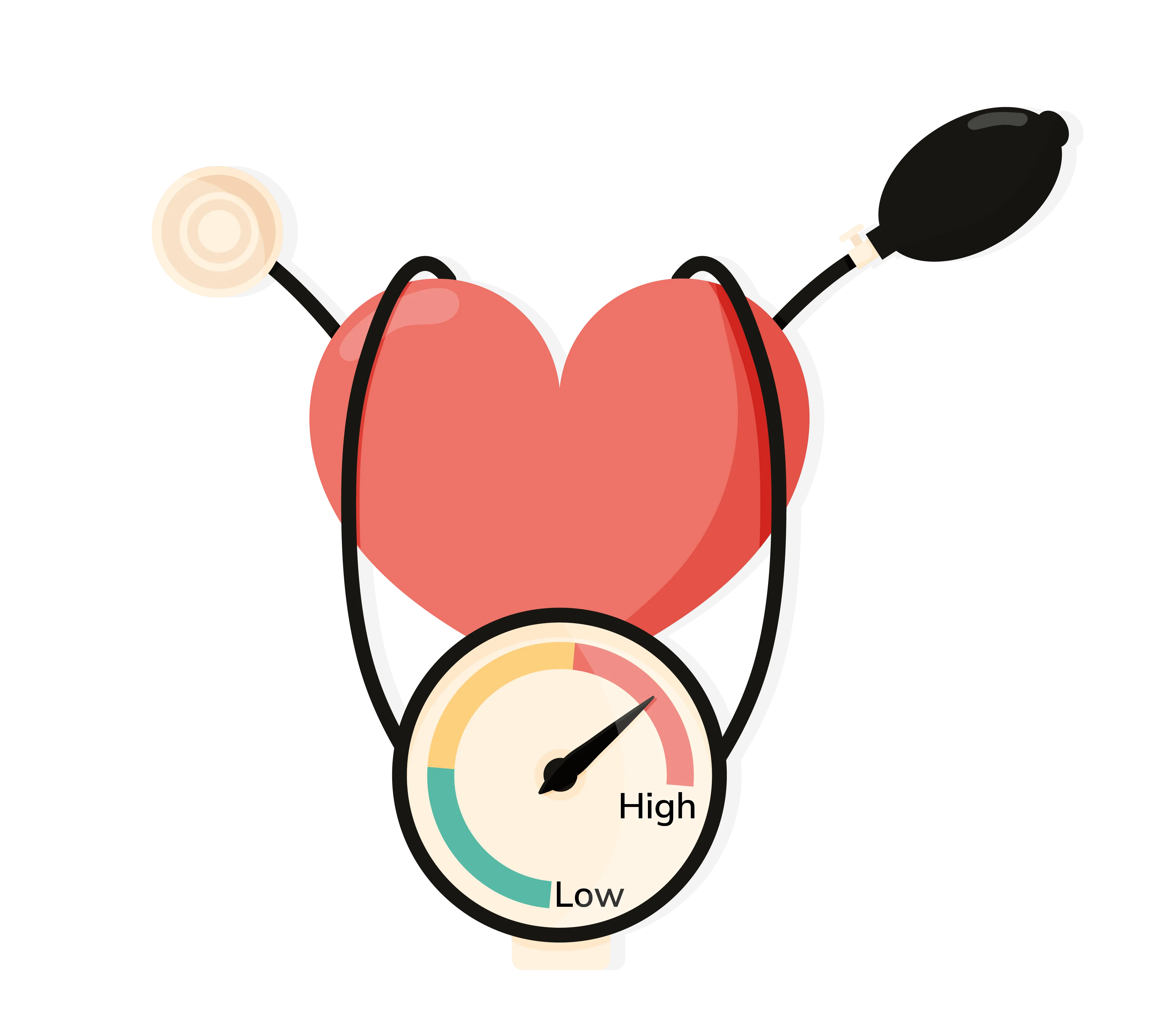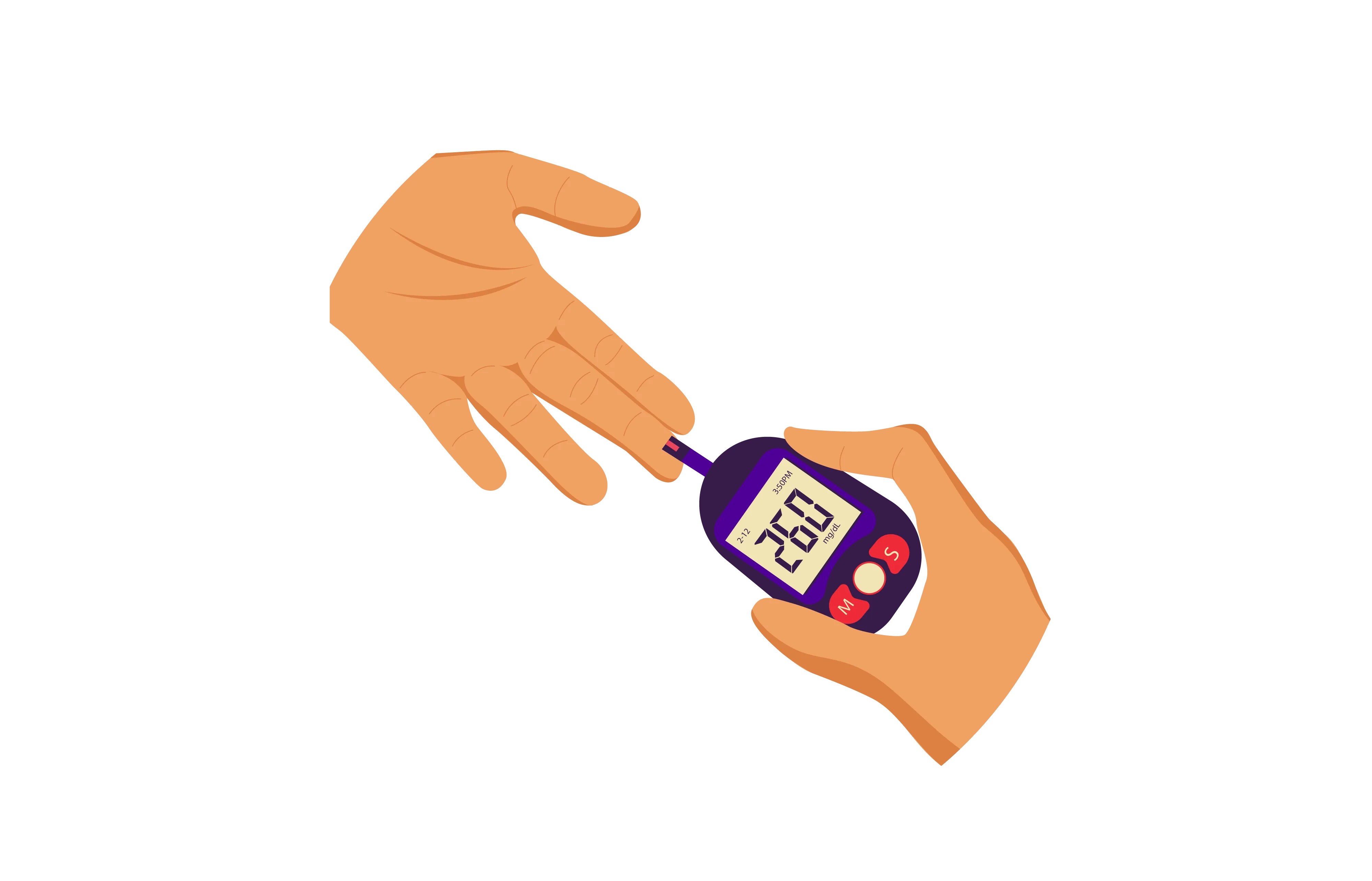Internal Medicine | 5 min read
High Cholesterol Diseases: What are the Types and How to Manage Them?
Medically reviewed by
Table of Content
Key Takeaways
- High cholesterol health risks can lead to multiple illnesses if not managed
- Cholesterol related diseases include atherosclerosis and cardiovascular issues
- High cholesterol management is possible by making lifestyle changes
Cholesterol helps build healthy cells in the body, but too much of it can be harmful. A high cholesterol level builds up fatty deposits called plaque in the arteries. It narrows the area available for the blood to travel through the blood vessels. This eventually increases pressure on your cardiac muscles. In some cases, a part of the fatty plaque can break off and form a clot. As a result, your artery gets blocked. This can weaken artery walls causing a stroke, heart attack, and more, which results in many high cholesterol diseases.
Cholesterol related diseases can be quite taxing on the body. It is important to manage the cholesterol level to reduce the health risks before they develop further. Read on to learn about the risks of high cholesterol diseases, their causes, and how to manage it.
What Are High Cholesterol Diseases?
The disease caused by a high level of cholesterol is categorized as high cholesterol disease. There are different kinds of cholesterol that exist in your body. Some, like HDL (high density lipoprotein) cholesterol, are known as good cholesterol. It is easily metabolized via the liver. There is an inverse correlation between HDL cholesterol and coronary heart disease [1].
LDL (low density lipoprotein) cholesterol is called bad cholesterol. It is not easily removed and gets deposited in your arteries. It builds up as plaque and hardens blood vessels. This is called atherosclerosis, which increases risks of high cholesterol.
High cholesterol can be both the cause and the effect in relation to other diseases. A high level of cholesterol is likely to worsen existing illnesses and cause a clot or blockage. It can even be caused by other preexisting diseases.
Diseases Caused by High Cholesterol
- Coronary heart disease
- Stroke
- Vascular disease
- Type 2 Diabetes
- High blood pressure

Diseases That Cause High Cholesterol
- Diabetes
- Obesity
- Kidney disease
- Chronic stress
- PCOS
How to Control Cholesterol-Related Diseases?
High cholesterol disease management requires making deliberate lifestyle changes. It may take some time and effort to do so, but it will be worth it for your health in the long run. Here are some changes you can make.
Go for a Balanced Diet That Is Heart-Friendly
The Mediterranean Diet is a great option for getting balanced nutrition and taking care of heart health. People living in and around the Mediterranean Sea have lower instances of coronary disease or cancer as compared to the general populace [2]. This is likely due to a rich, varied diet with many antioxidants.
If it is difficult to completely switch your diet, you can try to make small changes. Incorporate certain elements of the Mediterranean diet. More greens, heart-healthy olive oil, and fruits are a good place to start. Try to reduce saturated fats in your diet and add in monounsaturated fat or healthy fats.

Avoid Smoking
Smoking is bad for you, not just for your cholesterol levels but for your body in general. It can affect your heart, skin, lungs, cardiovascular health and more. Quitting helps increase good HDL and lower bad LDL cholesterol.
Work Out
Exercise is an important part of a healthy lifestyle. If possible, work out at least 4 to 5 times a week. A 30-minute workout of moderate intensity, or a short high intensity workout is ideal. This depends on your current fitness levels and your doctor’s advice, so make sure you are as active as you need to be!
Try to Lose Weight
Weight loss is a good way to keep your cholesterol levels in check. For some people, this may not be possible if weight gain is due to a hormonal or metabolic disorder. For the rest, maintaining a healthy weight helps towards a healthier future.
Additional Read: What are Macronutrients and How Important are They for your Health?
Take Your Medicines
It is important to continue taking medicines that your doctor has asked you to take for cholesterol. They help to lower LDL cholesterol and thus affect your heart health, insulin levels, and more. Make sure you get regular checkups for the same. Do not try to change any medication or dosages on your own. Follow your doctor’s instructions.
Talk to an Axpert
Everyone is different, and your lifestyles and needs vary too. A doctor will be able to guide you on how to maintain your heart health and stay fit. They may even prescribe medication if you need it. It is important to also make appropriate lifestyle changes too. Medication alone is not sufficient in order to stay healthy. You must also work on your fitness and stay aware and updated with your treatment plan.
Staying healthy is one of the most important things you can do for yourself and your family. Talk to a physician to get the right treatment to manage high cholesterol diseases. Doing this may even help you find appropriate changes to make in your lifestyle. To know more, book a doctor consultation on Bajaj Finserv Health.
References
- https://www.ncbi.nlm.nih.gov/pmc/articles/PMC5586853/
- https://www.karger.com/Article/Abstract/321197
Disclaimer
Please note that this article is solely meant for informational purposes and Bajaj Finserv Health Limited (“BFHL”) does not shoulder any responsibility of the views/advice/information expressed/given by the writer/reviewer/originator. This article should not be considered as a substitute for any medical advice, diagnosis or treatment. Always consult with your trusted physician/qualified healthcare professional to evaluate your medical condition. The above article has been reviewed by a qualified doctor and BFHL is not responsible for any damages for any information or services provided by any third party.





